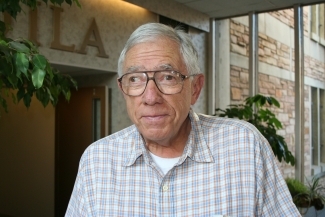In a recent New Yorker article titled "The Thorny Problem of Keeping the Internet’s Time," Judah Levine gives insight into his own work about timekeeping at NIST. According to the article: "Levine has maintained NIST's own N.T.P. service for decades, and he and a select few of his colleagues are responsible for reconciling its master clocks with Universal Coördinated Time, often within billionths of a second. If the companies disliked leap seconds, Levine said, they should have lobbied for change through the intergovernmental bodies that have the power to abolish them. (Levine himself would prefer a world without leap seconds, and the U.S. government, with his help, has proposed eliminating them for the sake of computer systems; astronomers and other governments have objected. The next opportunity for formal discussion will come in 2023, and the matter is already actively being debated.) "
You can read the whole article here.



 The Physics Frontiers Centers (PFC) program supports university-based centers and institutes where the collective efforts of a larger group of individuals can enable transformational advances in the most promising research areas. The program is designed to foster major breakthroughs at the intellectual frontiers of physics by providing needed resources such as combinations of talents, skills, disciplines, and/or specialized infrastructure, not usually available to individual investigators or small groups, in an environment in which the collective efforts of the larger group can be shown to be seminal to promoting significant progress in the science and the education of students. PFCs also include creative, substantive activities aimed at enhancing education, broadening participation of traditionally underrepresented groups, and outreach to the scientific community and general public.
The Physics Frontiers Centers (PFC) program supports university-based centers and institutes where the collective efforts of a larger group of individuals can enable transformational advances in the most promising research areas. The program is designed to foster major breakthroughs at the intellectual frontiers of physics by providing needed resources such as combinations of talents, skills, disciplines, and/or specialized infrastructure, not usually available to individual investigators or small groups, in an environment in which the collective efforts of the larger group can be shown to be seminal to promoting significant progress in the science and the education of students. PFCs also include creative, substantive activities aimed at enhancing education, broadening participation of traditionally underrepresented groups, and outreach to the scientific community and general public.